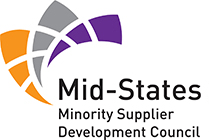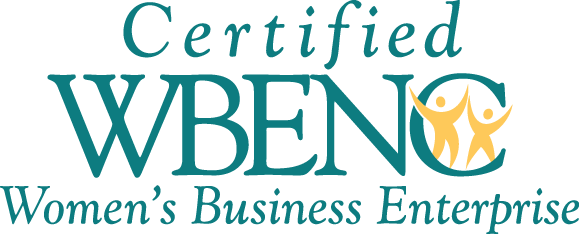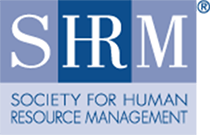
This article is from Indeed. View their article at the bottom.
Your cover letter gives you an excellent chance to share your skills and how you can transfer these skills to a prospective job. Highlighting these transferable skills in your cover letter provides the employer with the opportunity to find out more about who you are and what you can contribute. Understanding what skills you possess and how they relate to the open position can give you an advantage when crafting your cover letter. In this article, we discuss 10 transferable skills you can include in your cover letter, with examples for each.
Here are 10 transferable skills you can include in your cover letter, with examples:
- Communication
- Customer service
- Teamwork
- Leadership
- Problem-solving
- Time management
- Adaptability
- Dependability
- Technological
- Work ethic
Communication
Communication skills like active listening and written communication are skills that are highly sought-after by employers. Being able to communicate effectively makes you a more favored choice for employers because these skills transfer to every industry. Whether you are required to speak with clients, customers, coworkers or management, having strong communication skills makes you easier to work with.
You can include your communication skills in your cover letter by highlighting previous jobs where you had to speak with many people daily. Writing an excellent cover letter also gives a clear representation of your written communication skills.
Example: “My previous job included speaking with clients on the phone and in-person to resolve conflicts with orders, so taking calls in your customer resolution support center will come naturally to me.”
Related: Communication Skills: Definitions and Examples
Customer service
Customer service skills include a variety of soft skills like active listening, empathy and problem-solving. Having a history of servicing customers and clients can show your new employer that you have had experience in customer service and can transfer those skills to your new position. When writing a cover letter for a customer service position or any position that will involve client communication, include a brief history of your best customer service experiences and how you might use them in your new job.
Example: “My previous three jobs involved customer service, and my most recent job required me to speak with over 100 clients daily. Your customer service position is very similar to my most recent job, and I can transfer my skills to this fast-paced position.”
Teamwork
Being able to work with other people is a strong skill that many employers value highly. Even in leadership and management roles, teamwork is critical to promote progress and complete tasks. When applying for a job that will require you to work as part of a team, consider describing an experience of when you worked with coworkers to complete a task to reach a common goal or deadline.
Example: “I’ve been a part of many teams in my professional career. In my most recent position, I was part of a team that completed daily and weekly projects. I organized the implementation of the designs and communicated with the rest of the team to ensure we always completed our tasks before our weekly deadline. Whether I am working on one task as part of a team or working together with others on the same task, working with others comes naturally to me.”
Leadership
Leadership skills are essential in any industry, whether or not you are the manager. This is more than management—it includes being able to manage your time and your actions when working with others. Effective leaders solve problems, communicate clearly and know how to make a decision when it is needed. Consider highlighting one or two of your past experiences in a leadership role. If the job you are applying for will be your first professional leadership position, you can include past experiences that show you have the qualities of a leader.
Example: “In my experience, I’ve found leading by example to be my best quality, but I’ve also led many projects where I organized a team and managed our time to complete all of the necessary tasks. I solved every conflict that surfaced by communicating with my team and developing an understanding of each person’s capabilities, work ethic and emotions. These experiences have made me the leader I am today.”
Read more: Leadership Skills: Definitions and Examples
Problem-solving
Having the ability to solve problems and resolve conflicts is both a leadership skill and a beneficial quality for any employee. When a manager can feel confident in your ability to manage yourself and solve problems without needing excessive supervision, they might view you as a valuable asset to their business. Being able to solve problems means fewer problems for the manager who is thinking about hiring you. Include the resolutions and results of past issues you’ve solved in your cover letter.
Example: “I’ve been able to manage any problem I’ve ever encountered at any job. Unless the issue required manager approval to decide on a specific solution, I have always been able to find the solution on my own without the need for disturbing other coworkers or managers.”
Time management
The ability to manage your time efficiently is a useful skill that management values highly. Besides being able to complete the necessary tasks by a deadline or the end of the workday, time management skills commonly mean you can complete tasks faster than usual. Successful time management also shows you have an understanding of the teams and companies you’ve worked for. Consider using your cover letter to provide an instance where you effectively managed the time of yourself or others to complete the necessary tasks before a deadline.
Example: “Time management has been extremely important to me with any position I’ve had. Every job has consisted of meeting deadlines and completing specific tasks before the end of a day or week, and I had always made sure to understand the dynamics of the task and the team to complete my duties before they needed to be done.”
Read more: Time Management Skills: Definition and Examples
Adaptability
Adaptability skills are critical in fast-paced workplaces that are prone to many changes. When a change or shift happens within a company or project, an adaptable employee will adjust their tasks and modify goals for their benefit and the benefit of the company. Being able to learn new skills quickly and efficiently is advantageous to the company and the job applicant. Consider explaining previous jobs that required you to learn a new process or adjust your daily routine and how you adapted quickly and positively.
Example: “I enjoy working in fast-paced environments and can adapt to new processes by quickly learning new skills. My previous job required process adjustments frequently, and that has led me always to be ready for changes that happen.”
Dependability
Being dependable is extremely important to employers because they know they can rely on you. When you say you are going to do something, people trust you to do it. When you agree on completing a task, a manager can depend on you to complete it with quality.
Example: “Every job I’ve had included management depending on me to complete my tasks with quality. I have many times been trusted with more demanding and sometimes delicate tasks because I could be relied on to accomplish them.
Technological
Technology continues to increase in the workplace of most industries, and having a technical aptitude can put your future employer at ease when thinking about hiring you. For jobs that require you to use technology, being able to use your general technical knowledge to learn new skills and machinery can make you a more qualified candidate for a job. Briefly explain the technology you understand that directly relates to your potential position as well as how well you can adapt to new technology and required skills.
Example: “I have a strong technical aptitude and have adapted to new technology and processes in every job I’ve had. I can work in a variety of computer programs, understand point-of-sale systems and am quick to adapt to new technology when needed.”
Work ethic
Work ethic is a skill and a value that employers view highly. Your ability to follow through on your duties helps you maintain positive relationships with your coworkers and management. Briefly explaining your strong work ethic in your cover letter can give you an advantage when applying for a job.
Example: “I’m dedicated to the work I do wherever I work and whatever my responsibilities are. I’m keen on following through with every task or duty I’m assigned and keep a positive outlook to benefit the company and inspire other employees.”
“10 Skills for Cover Letters.” Indeed Career Guide, 26 May 2021, https://www.indeed.com/career-advice/resumes-cover-letters/cover-letter-skills.





